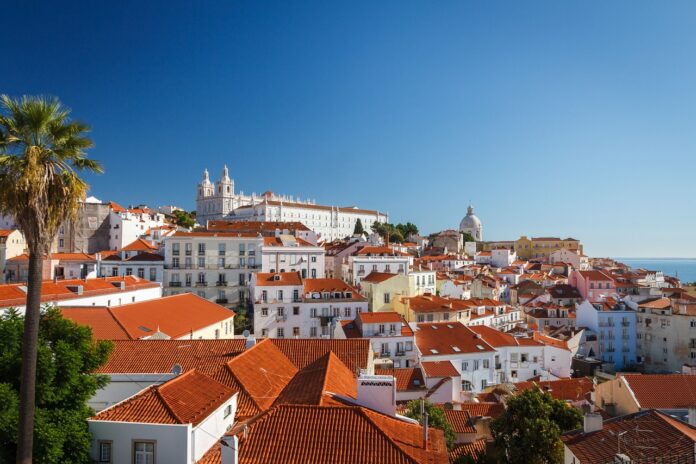22 Interesting Facts About Portugal
- Location and Borders: Portugal is located in southwestern Europe on the Iberian Peninsula. It is bordered by Spain to the east and north and has a coastline along the Atlantic Ocean to the west and south. Portugal also includes the Azores and Madeira archipelagos in the Atlantic.
- Square: The country covers an area of approximately 92,090 square kilometers.
- National Currency: The currency of Portugal is the Euro (EUR).
Interesting Facts About Portugal:
- Language: Portuguese is the sixth most spoken language in the world, with over 240 million speakers. About 80% of Portuguese speakers live in Brazil.
- Ferdinand Magellan: The Portuguese explorer Ferdinand Magellan was the first person to circumnavigate the globe, completing his journey in 1522.
- Vinho Verde: Portugal is the only country that produces “green wine” (Vinho Verde), a unique and refreshing wine that is a pleasant surprise for many tourists visiting for the first time.
- Historical Kingdom: The Kingdom of Portugal existed for nearly 800 years, from 1139 to 1910. In 1910, Portugal became a republic, and the modern democratic republic was established in 1976.
- Tourism: Annually, Portugal attracts around 10 million tourists, which is approximately the same as the country’s population.
- Diaspora: About 20% of Luxembourg’s population and 3% of France’s population have Portuguese ancestry.
- Pedro I and Inês de Castro: In 1357, King Pedro I of Portugal declared his deceased lover, Inês de Castro, as queen posthumously, two years after her death.
- Tea Ceremony: The worldwide famous English tea ceremony is attributed to the Portuguese princess Catherine of Braganza, who married King Charles II of England and introduced the tradition to the English court.
- University of Coimbra: Founded in 1290, the University of Coimbra is one of the oldest universities in Europe, reflecting Portugal’s long-standing commitment to education.
- National Emblem: Portugal’s national coat of arms features a heraldic shield placed on a golden armillary sphere, a navigation device used to determine the coordinates of celestial bodies and calculate distances.
- Subtitled Films: Movies shown in Portuguese cinemas are not dubbed but are instead presented with subtitles, maintaining the original language of the film.
- Bullfighting: Bullfighting is a popular tradition in Portugal, but unlike in some other countries, it is illegal to kill the bull during the event.
- Rain and Work: In Portugal, heavy rain is considered a valid reason for not going to work, as stipulated by national legislation.
- Football: Football holds a special place in the hearts of the Portuguese. Even the smallest towns have football clubs, showcasing the sport’s pervasive influence.
- Douro Valley: The Upper Douro Valley is a renowned wine region where grapes are cultivated using traditional methods without modern technology or chemicals. All winemaking processes here are done manually.
- Pico Mountain: The highest peak in Portugal, Pico Mountain, is located 1,525 kilometers from mainland Portugal, in the Azores archipelago.
- Fado Music: Portuguese romantic Fado music is a gem of world music culture. In 2011, this musical genre was inscribed on the UNESCO Intangible Cultural Heritage list.
- Religious Affiliation: Over 85% of Portuguese people are members of the Roman Catholic Church, 9% are atheists, and the rest belong to other Christian denominations.
- Clean Environment: Portugal is known for its clean cities and towns. It is rare to find litter on the streets as the locals take great pride in maintaining a tidy environment.
- Scenic Beauty: Portugal is famous for its stunning landscapes, including beautiful beaches, rolling hills, and picturesque vineyards, attracting nature lovers and tourists from around the world.
- Gastronomy: Portuguese cuisine is renowned for its seafood dishes, pastries like pastéis de nata, and hearty stews. The country’s culinary traditions reflect its rich history and maritime heritage.
- Cultural Heritage: Portugal is home to numerous UNESCO World Heritage Sites, including the Tower of Belém, the Monastery of Batalha, and the Historic Centre of Porto, showcasing its architectural and cultural significance.
